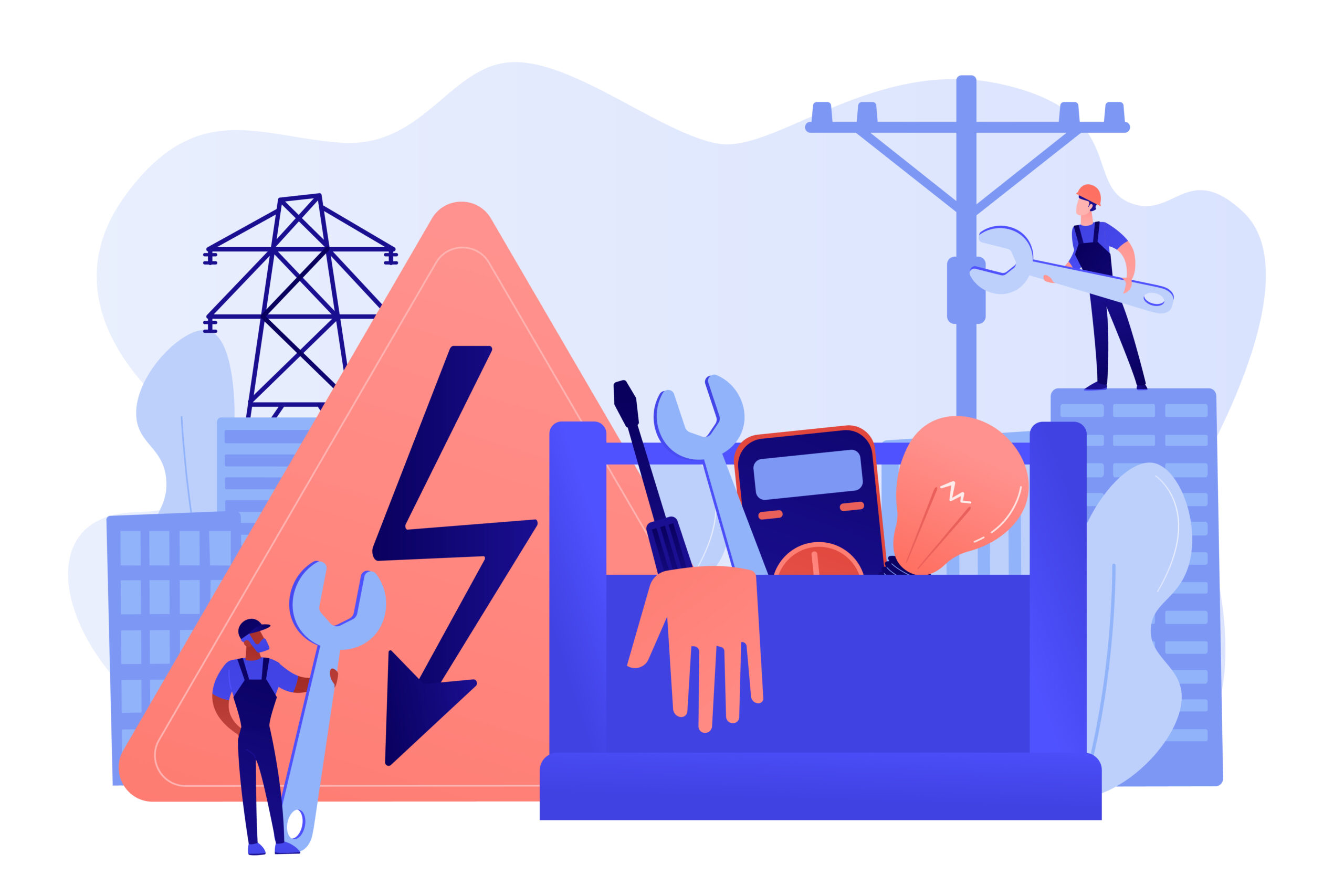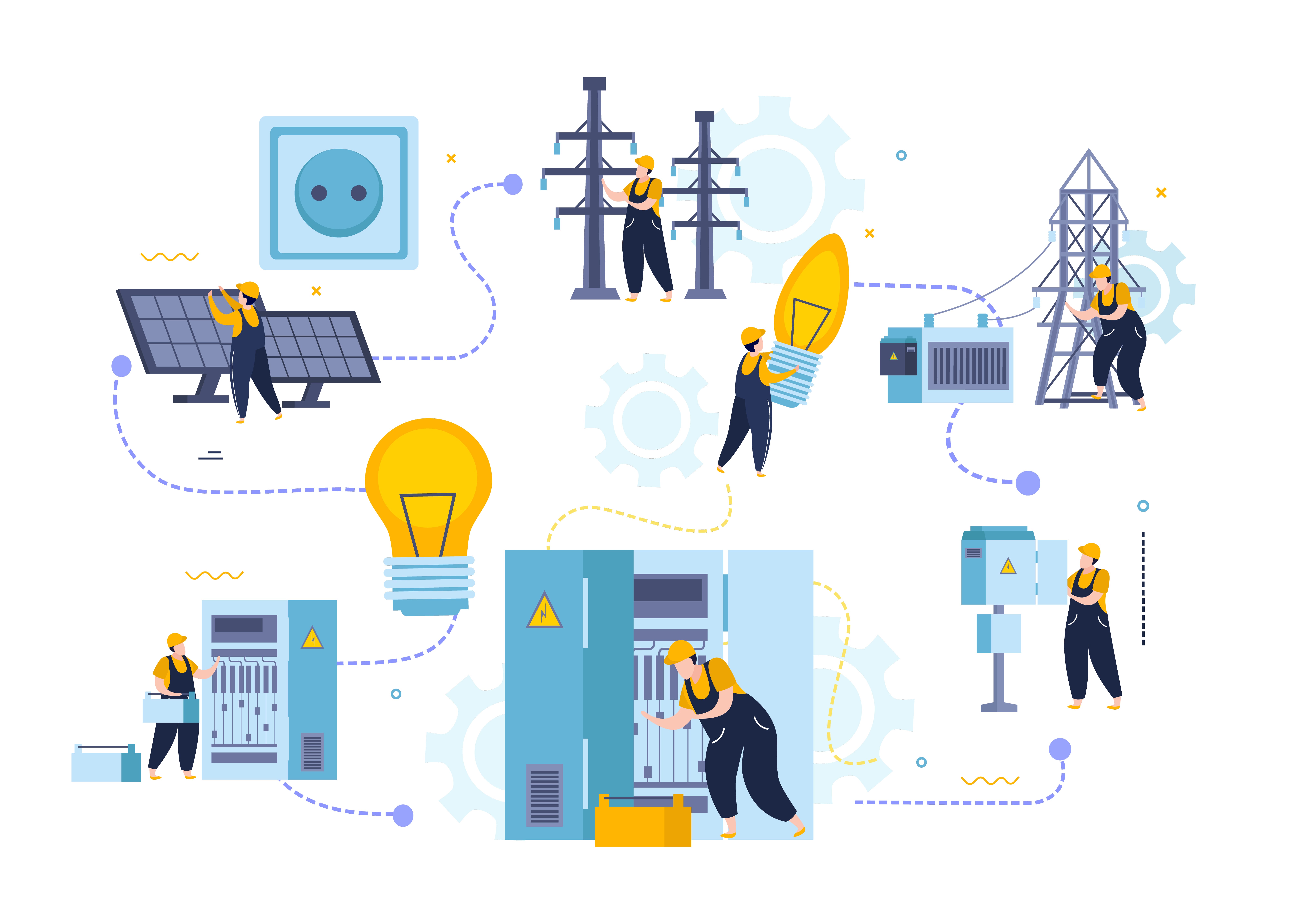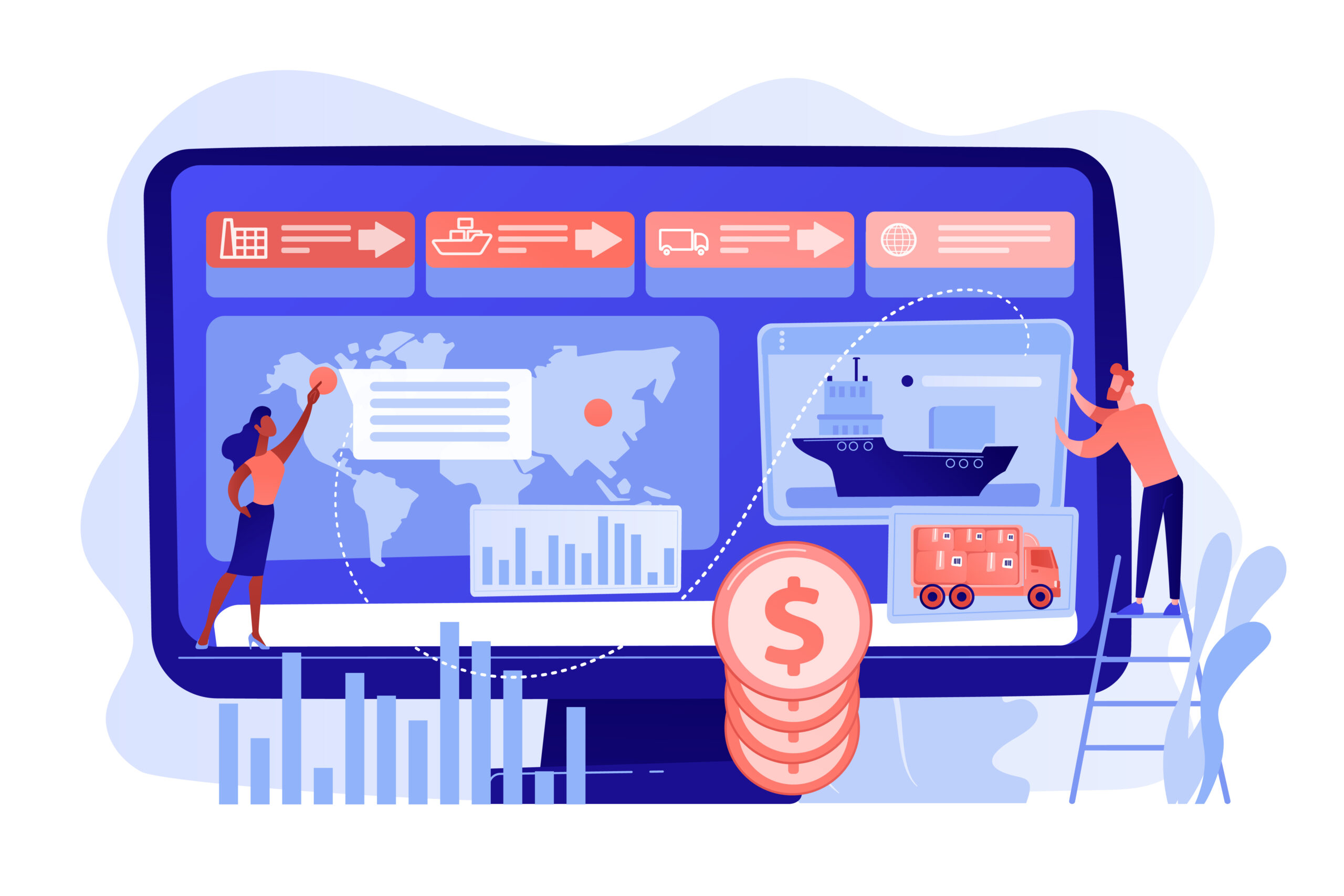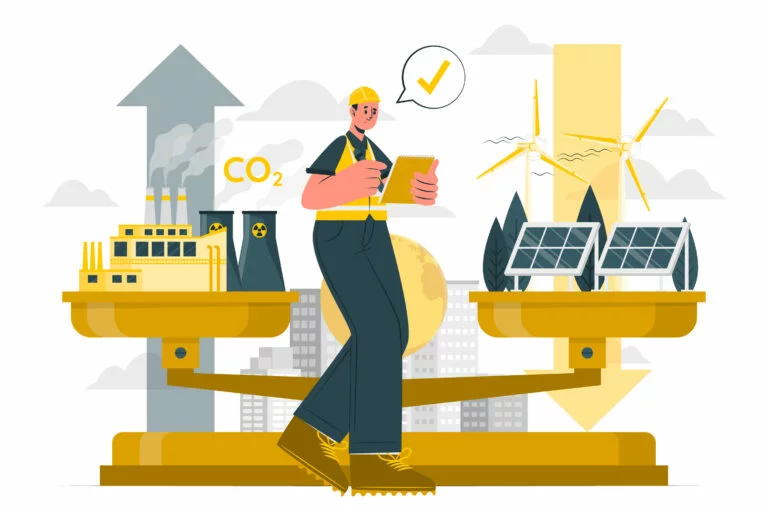In the energy industry, managing contracts is super important because there are a lot of rules and risks to keep track of. Energy companies use something called Contract Lifecycle Management (CLM) to handle their contracts well.
This helps them follow all the rules and make more money. With advanced tech like AI and automation, these organizations in the energy industry can make their contracts work smoother, quicker, and better overall. In this fast-changing world, it’s key for companies to adopt CLM solutions so they can stay ahead in the game and improve how they do business.
Understanding Contract Management Software in the Energy Sector

In the energy sector, managing contracts properly is super important for keeping things running smoothly. This process, known as Contract Lifecycle Management, helps companies from the start of a contract to when it’s carried out. Energy businesses depend on CLM not just to make their workflow smoother but also to stick to rules and boost their earnings.
With CLM software, these companies can create contracts more easily, negotiate better deals, and keep an eye on everything so they avoid problems and keep terms that work in their favor. Getting how CLM works specifically for energy firms is key if they want to be more efficient and stay ahead in the game.
The Significance of CLM for Energy Companies
For energy companies, managing contracts from start to finish is super important. It helps keep things running smoothly and avoids any problems. In the world of energy, where there are a lot of rules to follow and it’s really important to stick by them, being good at contract management can stop money loss and help get better deals in contracts.
With CLM software, handling contracts becomes easier and cheaper because everything about a contract is kept in one place, and tasks are done automatically. This gives energy companies an edge over others by making it easier for everyone involved to see what’s going on and work together better. Being able to manage contracts well is key for these companies as they deal with lots of complicated agreements and rules.
Related Article: How Financial Industry Get Benefit From CLM Software?
Contracts Used in the Energy Industry

Joint Operating Agreements
A Joint Operating Agreement (JOA) is like a rulebook used in the energy industry, especially for oil and gas projects. It’s made when different companies team up to work together. This agreement sets out who does what and who pays for what. It decides who manages the day-to-day work and how decisions are made, usually by voting.
It also says how costs and risks are shared among the companies for exploring and producing oil and gas. The Joint Operating Agreements also talk about how profits are divided based on how much oil or gas each company produces. If there are arguments or issues, the JOA has rules to solve them and decides who is responsible for what, so everyone knows their job.
Production Sharing Agreements
A Production Sharing Agreement (PSA) is a special deal used a lot in the energy industry, especially for finding and getting oil and gas, often in other countries. In a PSA, the government of that country permits a private company or group to search for and produce oil and gas. This agreement lays out what each side has to do and what they get in return.
The company usually gets back the money it spent on searching and drilling, and then it shares the profits with the government, usually based on how much oil or gas it finds. Production Sharing Agreements also talk about other money stuff like taxes and bonuses the government gets. Sometimes, they include rules about sharing new technology and hiring local workers to help the country’s economy. PSAs aim to make both the company and the government happy while making sure the country benefits from its resources.
Power Purchase Agreements
A Power Purchase Agreement (PPA) is a contract between a power producer and a buyer, like a utility or big business. It sets terms for how much electricity is sold, for how long, and at what price. Lasting 10 to 25 years, it provides stability. PPAs encourage clean energy investment, with fixed prices or incentives for renewables, ensuring a reliable power supply and income.
Fuel Supply Agreements
A Fuel Supply Agreement (FSA) is a deal between someone selling fuel and someone buying it, like a power plant or a big factory. It sets out what kind and how much fuel will be sold, how it’s priced, when it’s delivered, and how it should be good quality. These agreements help both sides plan and make sure they have enough fuel when needed.
They also say how payments will work. Fuel Supply Agreements give security to both the buyer, making sure they have fuel when they need it, and to the seller, ensuring they have a steady market. They might also talk about things like how to solve problems and who’s responsible if something goes wrong. Overall, FSAs are crucial in making sure industries like power, manufacturing, and transport have the fuel they need.
Engineering, Procurement, and Construction Contracts (EPC)
An Engineering, Procurement, and Construction (EPC) contract is like a one-stop shop deal for big projects, like building a power plant or a factory. It’s an agreement where one company takes care of everything from designing and planning (that’s the engineering part), to buying all the stuff needed (that’s procurement), to building it (that’s the construction).
Instead of hiring different companies for each job, the buyer just deals with one company for the whole project. EPC contracts make things simpler and more organized, with clear responsibilities and timelines. They’re commonly used for large-scale projects in industries like energy, infrastructure, and manufacturing.
Related Article: Maximizing CLM Benefits In Manufacturing Industry
What are Energy Industry Problems?

Operational Challenges
Energy companies deal with two main challenges: they need a lot of money for their operations and have to work in different places, each with its own rules. However, the biggest challenge is managing contracts manually, which takes time and can cause errors. So, they need to use technology to make things easier.
A big problem for energy companies is managing contracts manually. This means lots of work, mistakes can happen, and it’s hard to see what’s going on with the contracts. That’s why it’s important to use technology to make things smoother and work better.
Agility in a Changing Landscape
The energy industry faces the challenge of staying nimble and flexible in a rapidly evolving world. With the push towards clean energy gaining momentum, companies must strive to maintain a competitive edge. Additionally, the industry grapples with the need for well-structured contracts to ensure smooth operations and clarity in expectations.
Obstacles in Manual Processes
The energy industry encounters hurdles with manual processes, particularly concerning supply chain fragmentation and vendor relationship management. Maintaining cohesion across fragmented supply chains poses difficulties in coordinating operations efficiently. Moreover, managing vendor relationships manually can lead to challenges in communication and coordination, impacting the overall effectiveness of procurement processes.
Imperative of Digitization and Automation
The energy industry grapples with the necessity of digitization and automation, which are seen as critical for maintaining competitiveness and driving revenue growth. Failure to embrace digitization and automation can result in falling behind competitors and missing out on opportunities for revenue generation and business expansion.
Related Article: CLM For Retail Industry: Maximizing Growth Potential
CLM Software for the Energy Sector

Contract Management software can be highly beneficial for the energy sector, just as it is for many other industries. CLM software helps organizations manage the entire lifecycle of their contracts, from creation and negotiation to execution and renewal. Here’s how CLM software can benefit the energy sector:
Streamlining Contract Processes: Energy companies have many contracts with suppliers, vendors, customers, and regulators. Contract management software helps by doing tasks like writing contracts, getting approvals, using electronic signatures, and keeping track of contracts. This saves a lot of time and work managing contracts.
Enhanced Compliance: Energy companies operate in a highly regulated environment with numerous compliance requirements. CLM software can help ensure that contracts adhere to industry regulations and internal policies, reducing the risk of non-compliance and associated penalties.
Improved Visibility and Control: CLM software offers central storage for contracts, making it easier for energy companies to access and manage their contract data. This improved visibility allows for better tracking of contract milestones, obligations, and performance metrics, enabling proactive contract management and risk mitigation.
Risk Mitigation: Effective contract management is essential for reducing risks in the energy sector, where contracts are often complex and involve large financial commitments. CLM software helps identify and manage risks related to contract terms, obligations, and performance, decreasing the chances of disputes and legal issues.
Optimized Supplier Relationships: Energy companies rely on relationships with suppliers and vendors to ensure a reliable supply chain. CLM software can facilitate better communication, collaboration, and negotiation with suppliers, leading to more favorable contract terms, improved vendor performance, and stronger partnerships.
Related Article: Contract Management Software (CLM) For Transportation Industry
Why Choose Volody’s CLM Software?

Volody’s AI contract management software is designed specifically for energy companies to streamline their contract management processes. It helps manage operations that involve large investments (CAPEX) and enhances visibility across multiple locations, making contract approvals faster with more intelligent contracts.
The software also focuses on simplifying both upstream and downstream contracting activities. It prevents revenue leakage by improving transparency into supplier terms and effectively tracking vendor performance against agreed deliverables. Additionally, it provides detailed insights into executed agreements, enabling companies to draft stronger contracts in the future with favorable terms and compliant clauses.
Features of Volody’s AI CLM Software

Approval Workflows
Approval workflows in CLM software for the energy industry automate and structure contract approval processes. They ensure contracts are approved smoothly and on time, customized to roles, departments, and contract types. This system helps companies follow rules and internal policies better, keeps clear records of who approved what for accountability, and works smoothly with ERP systems to save time and make managing approvals easier. Overall, CLM software’s approval workflows optimize operations by ensuring compliance, reducing delays, and integrating smoothly with existing systems in the energy sector.
Obligation Management
Obligation management in CLM software helps energy companies track and meet their contractual obligations efficiently. It allows them to centralize obligations like delivery schedules, regulatory compliance, and payment terms within one system. This feature ensures they fulfill these obligations on time, reducing risks and potential disputes.
Automated alerts keep everyone informed about upcoming deadlines, making it easier to manage obligations proactively. Integration with ERP systems further streamlines processes, ensuring smooth coordination between contractual obligations and operational workflows. Overall, obligation management in CLM software helps energy firms stay compliant, minimize risks, and operate more effectively.
Enhance Supplier Relationship
CLM software helps energy companies improve relationships with suppliers by enhancing communication and collaboration throughout contract negotiations and management. It ensures clear expectations, tracks performance, manages renewals efficiently and uses analytics to optimize interactions and reduce costs. This strengthens trust and operational efficiency in the energy sector.
Related Article: How Can Pharmaceutical Industry Benefit From CLM Software
Frequently Asked Questions
How does CLM improve contract efficiency in energy companies?
In the energy sector, CLM makes handling contracts a lot smoother for energy companies. It cuts down on how long it takes to get things done, helps make sure the terms are good for us and keeps everything about managing contracts neat.
CLM systems help companies by creating, assembling, and checking contracts automatically. This makes these companies better than their competitors because they can handle the difficult parts of agreements in this field much easier. This way legal teams can whip up contracts that are ready to be checked at any time and look after them well all through their life.
What are the cost benefits of implementing a CLM system?
By putting a CLM system in place, energy companies can save money. This happens because it helps stop revenue from slipping through the cracks and makes managing contracts more cost-effective. With a CLM, spotting and fixing problems with contracts that could cause lost revenue becomes easier. Also, by making contract management smoother, these systems help energy companies use their resources better and cut down on how much they spend running things day-to-day.
Can small energy companies also benefit from CLM?
Small energy companies can benefit from using CLM systems. These systems make contract management more efficient, reduce risks, and ensure compliance, giving these businesses a competitive advantage. As these smaller firms grow and take on more work, CLM systems help keep their contract management processes smooth and organized.
How does technology integration impact CLM effectiveness?
Integrating technology into Contract management software is important for making them work better. Adding automation and digitization steps up how well and accurately these contract management processes run. With automation, there’s less manual work because it makes the workflow smoother and speeds up the whole cycle time of contracts. On top of that, digitization makes getting to contract data a breeze, helps everyone work together more easily, and keeps everything in line with rules that need to be followed.
Conclusion
To wrap things up, managing contracts from start to finish is super important for companies in the energy sector. By using cool tech like AI and setting up systems that do stuff automatically, these businesses can make handling contracts a breeze. This helps them keep an eye on risks and ensures they’re following all the rules.
Looking ahead, we’ve got exciting developments like blockchain and smart data analysis making everything even smoother. For energy companies big or small, getting into contract management tools is key if they want to work smarter and stay competitive as things keep changing fast.





